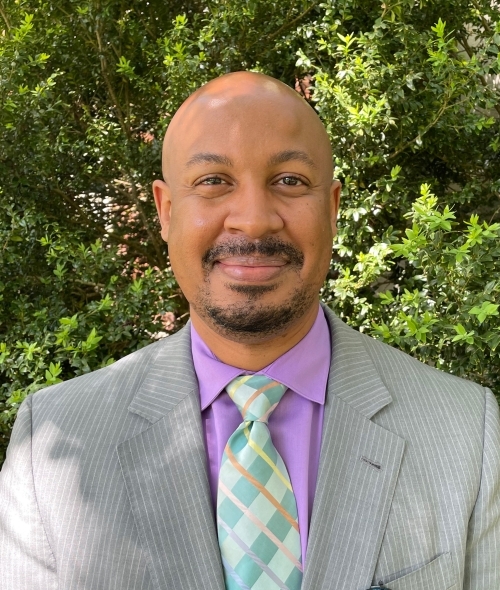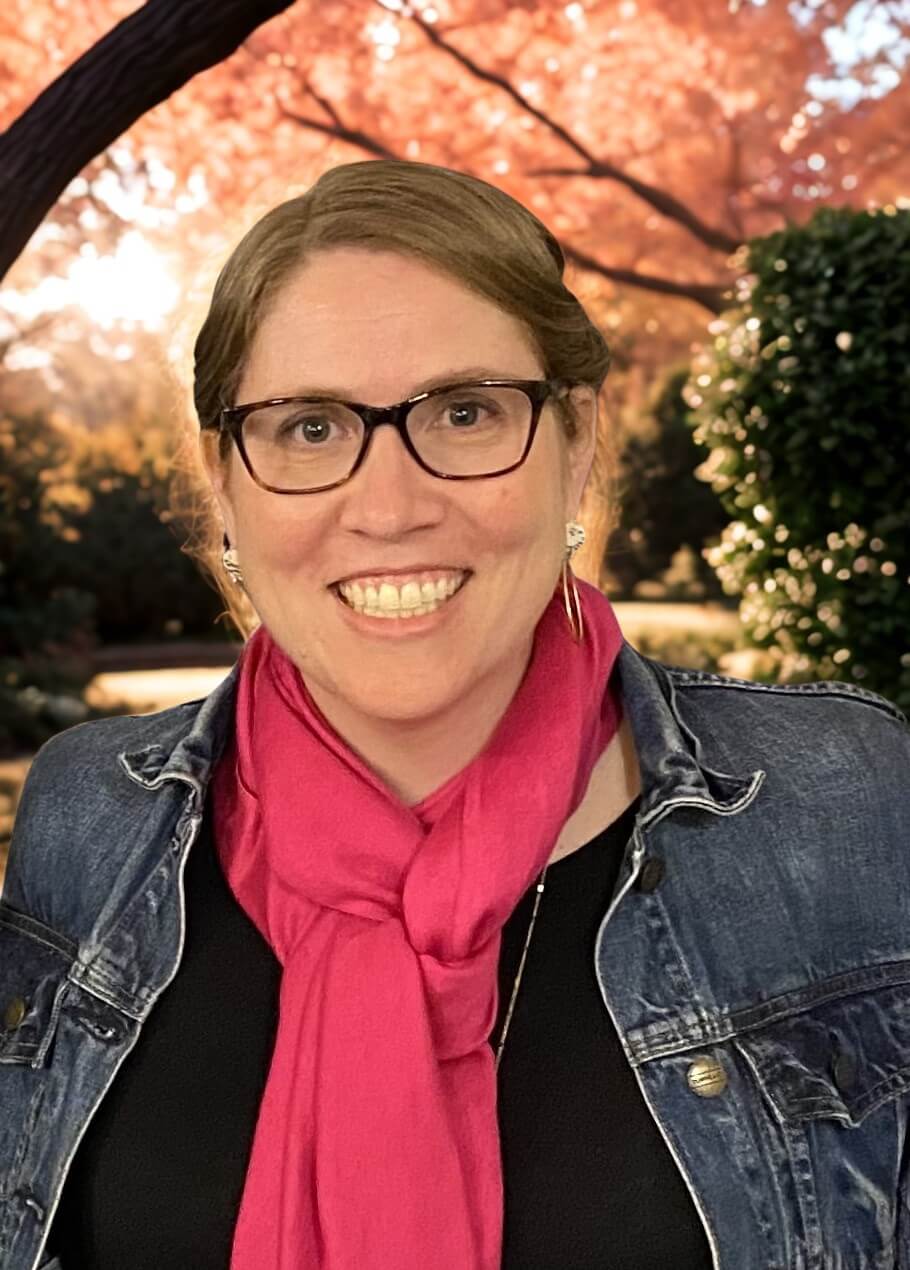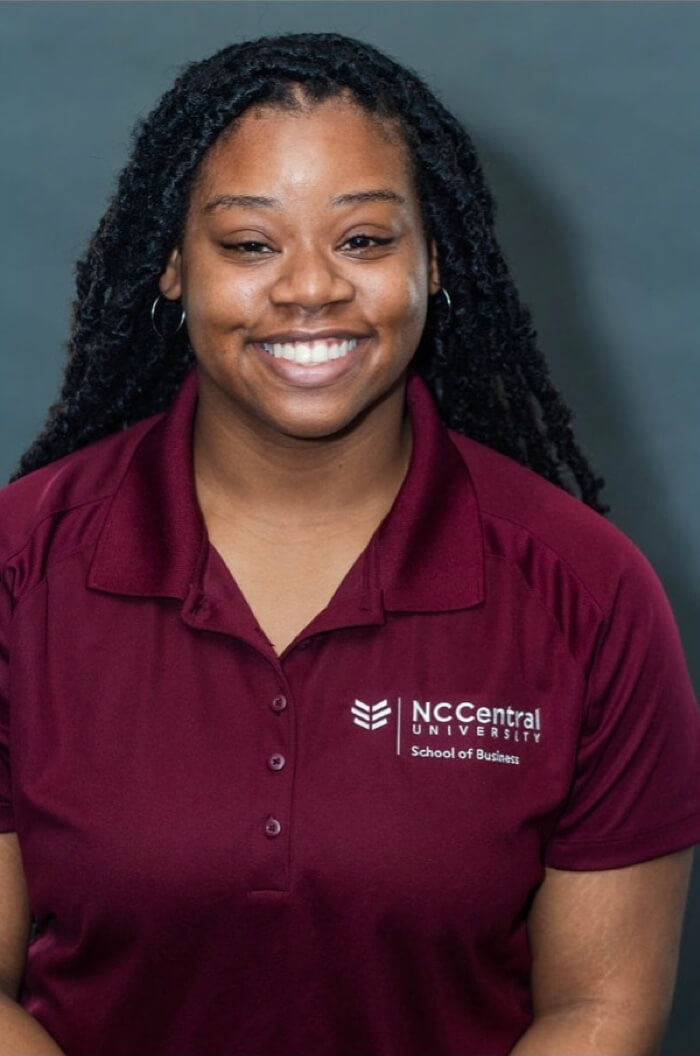Behind the Scenes: The People Powering NCShare
Three years ago, staff and faculty from three North Carolina higher education institutions, and MCNC, a nonprofit educational network service provider, joined forces on an ambitious project.
Their purpose – build a statewide cyberinfrastructure capable of providing high-speed networking to all areas of the state. The NCShare project aims to level the computational playing field and bridge research institutions, spurring innovation and attracting workers to the research-friendly area.
In this series, we step behind the curtain to highlight the dedicated individuals who have been working methodically to guide NCShare. These are the problem-solvers, the strategists, and the hidden gems, trouble shooting and pushing NCShare forward.
Through their stories, they share candid reflections on the obstacles they’ve faced, the insights they’ve gained, and their shared motivation.

Brandon Woods
‘NCShare is about equity’
When Davidson College joined NCShare in June 2022, Brandon Woods, an application analyst in academic technology, immediately posed a critical question: “What are we doing, and how is this different from a product we already have on campus?”
Since then, Woods has leveraged his charisma and interpersonal skills to market the program to faculty at Davidson, providing user-friendly software and high-speed networking capabilities across campus.
When Davidson College joined NCShare in June 2022, Brandon Woods, an application analyst in academic technology, immediately posed a critical question: “What are we doing, and how is this different from a product we already have on campus?”
Since then, Woods has leveraged his charisma and interpersonal skills to market the program to faculty at Davidson, providing user-friendly software and high-speed networking capabilities across campus. At the same time, he’s consistently raised vital concerns, playing an integral role in the ongoing improvement of the program.
NCShare is a partnership with MCNC – a technology group based in Research Triangle Park (RTP) – and institutions such as Davidson, Duke University and North Carolina Central University (NCCU). The program has recently grown to include the University of North Carolina-Chapel Hill and North Carolina Agricultural and Technical State University.
As Woods explained, challenges have emerged because NCShare is largely targeted towards STEM professors, who prior to the program, already had a system that worked for them.
“If a department uses SPSS that means they could use R,” he said. “But if they’re trained in SPSS, they don’t want to use R.”
Woods is working to identify effective ways to pitch NCShare to faculty beyond the STEM field.
“I don’t know what the sale is for something like [NCShare] to an English professor,” he said. “Raw compute power doesn’t mean anything when you’re reading The Catcher in the Rye.”
The chief information officer at Davidson, Kevin Davis, said NCShare can also appeal to non-STEM faculty, as the use of computationally supported methods for data analysis purposes is growing across disciplines – including those traditionally thought to be outside STEM.
“NCShare offers services that can help faculty from diverse disciplines give their students access to world-class computing for course purposes without needing a campus computer lab or any research computing capabilities of their own,” he said. “From any device, even a low-end, basic laptop, they and their students can access resources like mathematical and statistical applications from anywhere on or off their campus.”
One of the key aspects of NCShare, especially when presenting it to faculty, is equitable access to technology and software across Davidson and the other participating institutions.
“In a perfect world, a product like NCShare means that every student has the same experience,” Woods said. “That’s the most important thing for me… NCShare to me is about equity.”
He also noted that the partnership plays a significant role in improving efficiency for faculty, staff and students.
“[In an ideal scenario], once we’ve given thought to how we’re going to roll out [NCShare] for different departments and courses, then it’s the ease of replicating it for all students – so faculty don’t have to spend time troubleshooting in class,” Woods said. “But the focus for me is that every student has the same experience.”
Looking ahead, Woods hopes that information about the partnership will continue to grow and reach faculty and students across both the Davidson campus and throughout the state of North Carolina.
“I wish more people knew how NCShare could apply to their individual situations,” he said.

Brian Little: Davidson’s NCShare Technical Backbone
Davidson’s NCShare Technical Backbone
Since Davidson College joined NCShare in June 2022, technical lead Brian Little has recognized key challenges in the program. He also provides accessible software and high-speed networking for faculty, staff and students.
Since Davidson College joined NCShare in June 2022, technical lead Brian Little has recognized key challenges in the program. He also provides accessible software and high-speed networking for faculty, staff and students.
NCShare – a partnership between Duke University, Davidson College, North Carolina Central University (NCCU), and recently, the University of North Carolina -Chapel Hill and North Carolina Agricultural and Technical University – provides connectivity to all participating campuses. The program also includes MCNC, a high-speed networking services provider based in Research Triangle Park (RTP).
On a typical day, Little assists faculty with setting up containers while also addressing technical questions or directing them to the appropriate support. Determining a way to frame the discussion around NCShare products, however, has required some finesse.
“It’s hard to convince people to switch to something that’s essentially an experimental product and say, ‘Please teach your class in a way that depends on this,’” he said.
Little is the technical backbone of the NCShare partnership at Davidson, and he plays a crucial role in identifying key issues that drive continuous improvement in the program.
Davidson is a campus with quality resources and advanced software, as such, it has not been easy to decide where NCShare fits.
“A lot of what would be offered through NCShare is part of our JupyterHub installation. So, there’s an R implementation through that, there’s Python… all the things we would normally build a container around are already there,” Little said.
Kevin Davis, the chief information officer at Davidson, said that although the college is fortunate to have in-house research capabilities and expertise, the demand on these resources can be high with limited capacity.
“NCShare offers us an opportunity to scale research computing capabilities to a non-core audience and to provide extra capacity for core users,” he said, adding it was an important complement to the in-demand but capacity constrained local research computing systems Davidson manages.
According to Little, framing NCShare in terms of equity – emphasizing equal access to resources and baseline computing capabilities – has resonated more effectively with faculty at Davidson. In fact, professors now recommend NCShare to their students.
“I know an economics faculty member who teaches with R… and he points students to NCShare as a resource,” Little said. “Others who might use or need NCShare don’t necessarily know they have the need or ability.”
Research computing is increasingly a topic of discussion during the faculty recruitment process, and the availability of NCShare resources and services like the science DMZ is a plus, according to Davis.
“My hope is that this also increases the opportunities for easier research collaboration across a shared platform over time,” he said.
For Little, getting to teach people about the resources and capabilities available through NCShare has been fulfilling.
“It’s interesting to watch someone’s first reaction to [NCShare] which is initially a little confused about what the product is because they don’t have any experience with containerized computing,” he said. “But when I show them the basic interface, and what it takes to start up a container… it literally takes 10 seconds.”
Despite the road bumps in the program, Little is passionate about the partnership and hopes more people can learn about the resources it provides.
“I love the idea [of NCShare], I just wish we could get more people to buy in,” he said. “It’s satisfying in the respect that I get to introduce [people] to something new because I like broadening peoples’ horizons.”

Laura Webb
Connecting Institutions To Problem Solve
When institutions across North Carolina teamed up to increase cyber infrastructure and provide high-speed networking systems through NCShare, it presented challenges as schools learned how to work cohesively. Laura Webb, a project manager in Duke’s Office of Information Technology, has been a key player in driving collaboration and success between participating schools in the program.
In 2021, OIT applied for a grant after a group of executive leaders from institutions across N.C. envisioned how higher education could work together to share technology resources. A grant from the National Science Foundation made this goal possible, and NCShare was born.
The partnership between Duke University, North Carolina Central University (NCCU), Davidson College and MCNC – a technology group based in Research Triangle Park (RTP) that supplies connectivity to all participating campuses, has grown to include the University of North Carolina-Chapel Hill and North Carolina Agricultural and Technical State University.
On a day-to-day basis, Webb takes care of the coordination necessary to maintain the connection between all the working groups, especially the leadership team of principle investigators. She also ensures the right people are networked through email, meetings, documentation, or other forms of communication.
“If one institution has a problem, and another institution is the one who’s solved it, I need to be the one to connect them,” she said.
Webb, who started working with NCShare in May 2022, is also a vital component in guaranteeing objectives have been met. She keeps to-do lists, creates status updates and communicates between each team to ensure everything is flowing properly. She also verifies that NCShare is keeping up with the provisions of the grant. If a change needs to be made, Webb collaborates with grant managers to create a solution.
“It’s what we call scope in project management, so making sure we’re in bounds for what we’ve been financially supported to do,” she said.
Each institution had their own functioning system with unique approaches to communication, technology and culture. Some challenges were created in relation to these nuances, as each campus learned how to coordinate with each other.
“I’ve seen, and been inspired by, how each of these institutions are doing their own thing locally for their students, faculty, researchers and staff,” Webb said. “I love to see the commonalities that make me feel like we’re not crazy; the same stresses and problem-solving have to happen at all institutions. And at the same time, it brings new ideas that I wouldn’t have otherwise been exposed to.”
Webb’s contributions have been fundamental in ensuring faculty and staff at the partnering institutions have access to software that amplifies research and teaching.
“[Project management] is made more fun, and more satisfying, the more diverse that group is,” she said. “It feels more satisfying at the end if you do what you say you’re going to do because each person gets to bring their experience from their own context.”

Brianna Phifer
Figuring Out Where the Interest Lies
It wasn’t long ago that Brianna Phifer was completing her capstone project at North Carolina Central University (NCCU), and now she’s helping current students complete their own.
Phifer, a cybersecurity lab assistant, supports faculty who use NCShare, a partnership between Duke University, NCCU, the University of North Carolina at Chapel Hill, North Carolina Agricultural and Technical State University, Davidson College and MCNC. The project aims to create an accessible high-speed networking system and increase cyberinfrastructure for participating institutions in North Carolina.
When Phifer first learned about the position as cybersecurity lab assistant through NCCU Chief Information Officer Joel Faison, it was presented as a way to make NCShare more accessible, and to allow researchers to communicate between participating institutions.
“NCShare allows faculty and staff to access resources on an online platform without having to download it,” Phifer explained.
Her role is critical to the partnership at NCCU. When she started, Phifer was provided with a list of 10 faculty and students at NCCU already connected with NCShare. From there, she was able to connect with faculty who were interested in getting access.
“The most challenging part is figuring out where the interest lies and getting engagement,” said Phifer, a recent NCCU alumna.
She’s created educational materials to explain what NCShare is, the resources it offers and how to access it. The information is published on NCCU’s Knowledge Base for seamless accessibility.
Introducing faculty to new software systems can be challenging, but Phifer is working behind-the-scenes to expand adoption across campus.
“It’s exciting to hear that someone is actually using [NCShare] for their capstone project because I know what it was like, not too long ago, to be going through capstone,” Phifer said. “To provide a tool or resource that someone is actually able to use is very rewarding.”
Faculty such as Timothy Mulrooney, Ph.D., an associate professor of environmental, earth and geospatial sciences who works with geospatial data hasfound NCShare’s resources helpful.. Ravanasamudram Uma, Ph.D., a professor of mathematics and physics, has also had a student utilize the platform in her capstone course.
According to Phifer, many researchers are already familiar with the software available through NCShare. When onboarding new users, Phifer directs them to the university’s Knowledge Base.
“It’s something they’ve been using, it’s just in a more accessible place,” she said.
By streamlining access to essential software and tools, NCShare has enhanced teaching and research across partnering institutions. Phifer’s efforts have helped the NCCU community integrate these resources more effectively, opening new opportunities for collaboration and innovation.
“I wish people knew [NCShare] was here and knew what we offer,” Phifer said. “There’s a team that’s willing to support them.”